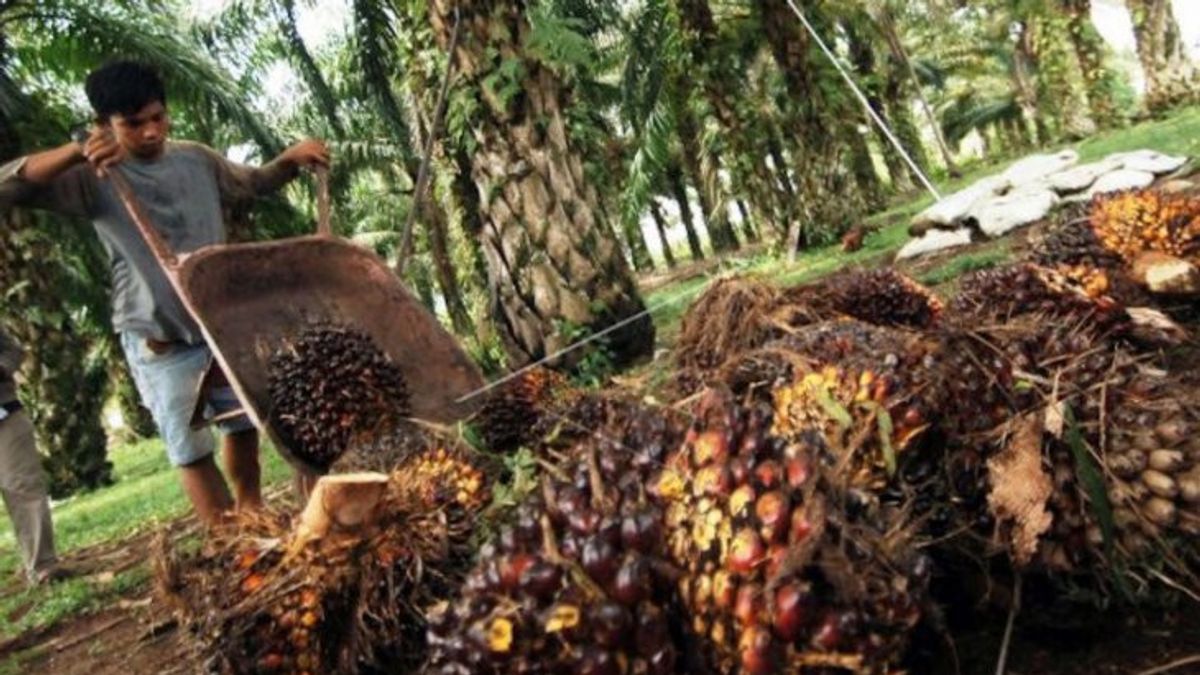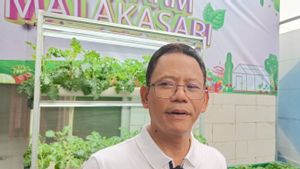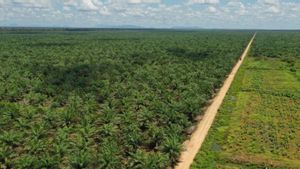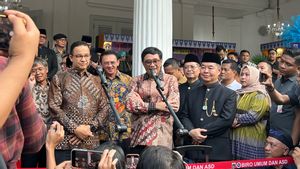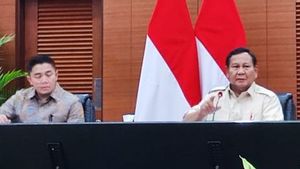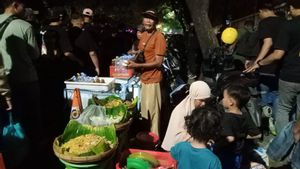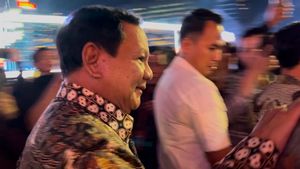JAKARTA - The Indonesian palm oil industry is one of the mainstay commodities of national exports and continues to be accelerated by the Government to help support economic growth.
In 2022, Indonesia will be able to produce oil palm by 46.82 million tons. Meanwhile, the area of the people's oil palm plantations will reach 6.21 million ha or 40.51 percent of the total area of oil palm plantations in Indonesia in 2022.
"Indonesia is the largest palm oil producer in the world and more than 16 million tons are produced by people's farmers," said Coordinating Minister for Economic Affairs Airlangga Hartarto in his official statement, Friday, December 8.
To increase the productivity of people's oil palm plantations, the Government has implemented the People's Palm Oil Rejuvenation (PSR) program. In the 2017-2023 period, the rejuvenation area of people's gardens reached 306,000 ha for 134 thousand farmers with a total disbursed fund of IDR 8.5 trillion.
"But this is not enough. The President's direction is 300 thousand more farmers," said Airlangga.
Other efforts made by the Government include through the Infrastructure Facilities Program in the form of providing seed assistance, fertilizers, pesticides, and agricultural machinery.
In terms of increasing the human resources of oil palm plantations, the Government has also provided assistance for education and training programs with the number of recipients during 2023 reaching more than 7,000 people with a total fund of IDR 127 billion.
"The government continues to encourage this palm oil industry. And currently the value of palm oil exports is Indonesia's mainstay, worth 29.66 billion US dollars in 2022. This is the largest export along with nickel," said Airlangga.
Airlangga also conveyed the challenges of the palm oil industry regarding the European Union Deforestation Free (EUDR) policy and emphasized important things that APKASINDO must immediately resolve, especially regarding land approval data verification and ISPO certification.
Airlangga said that there are at least three basic challenges in the future, namely that EUDR has the potential to issue palm oil plantations from the global supply chain, General Data Protection Regulation which requires that all farmers with products targeted by EUDR submit garden geolocation data without any legal guarantee that the data will be covered, and EUDR will group the country in three categories, namely low risk, moderate risk, and high risk.
"Of course we want Indonesia to have a low risk. Therefore, the issues of implementation are the government's top priority," said Airlangga.
Then Airlangga also said that the Indonesian government together with Malaysia had made a joint mission in May 2023 to express objections to the EUDR.
As a follow-up, the Indonesian-Malaysia and EU Joint Task Force has been formed which aims to prevent the implementation of EUDR from harming producing countries.
SEE ALSO:
"The government has created a joint mission. I went with the Deputy Prime Minister of Malaysia to bang on the door of the European Union so that they don't make regulations whose breath is plantation imperialism. So, we want national capabilities to be prioritized," said Airlangga.
Furthermore, regarding land approval data verification and ISPO certification, Airlangga requested that these two things be resolved immediately. The increase in ISPO certification is important considering the realization of ISPO certification as of December 6, 2023, as many as 819 certificates, of which 107 certificates are people's oil palm plantations with an area of 426,000 ha.
The low realization of ISPO certification for oil palm farmers encourages the Government to make changes to regulations where the Government will provide ISPO certification assistance for people's palm oil plantations.
Airlangga conveyed the assistance, including for Plantation Business Registration Certificates, Environmental Management Certificates, Training of Internal Control Systems, Assistance, and Certification and/or Review.
In addition, Airlangga also emphasized that the APKASINDO team within one month was able to resolve various problems related to land registration data verification and ISPO certification.
The whole meeting material has been completed and the results are concrete for farmers. 800 thousand hectares, 300 thousand farmers, "concluded Airlangga.
The English, Chinese, Japanese, Arabic, and French versions are automatically generated by the AI. So there may still be inaccuracies in translating, please always see Indonesian as our main language. (system supported by DigitalSiber.id)
